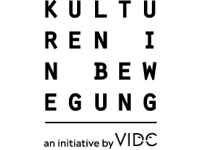Panel discussion on current developments in Syria following the fall of the Assad regime. Afterwards, Lebanese artist Nour Sokhon will present a sound performance from her debut album ‘Beirut Birds’.
Thursday, 10 April 2025, 18:00-20:30
Novum am Hauptbahnhof
Karl-Popper-Straße 16, 1100 Vienna
Registration: seewald@vidc.org
Background
After the surprising overthrow of the Assad regime in December 2024 and the takeover by the Islamist movement Hajat Tahrir al-Scham (HTS), it is still unclear which direction Syria will take in the future. According to the UN, Syria was considered the country with the largest displacement crisis worldwide before the fall of the regime, with 13.8 million displaced persons inside and outside the country. After decades of brutal dictatorship and years of war that have led to the country being divided into different spheres of influence, Syria faces major challenges not only politically but also economically and socially. During the event, we will discuss how Syrians in Syria and in exile have experienced the developments of the last few months. How do they assess these developments? What are their hopes and fears? Which existing structures can be built upon and how can a successful interaction between Syrians in Syria and in the diaspora be shaped?
How things will continue in Syria depends not only on the current Syrian actors, but also on regional powers such as Turkey, Israel, and Iran. Russia and Iran have long been seen as supporters of the Assad regime. It was only through their support that the regime was able to violently crush the uprisings that began in 2011 with the so-called Arab Spring and bring large parts of Syria back under its control. The weakening of Hezbollah by the Israeli attacks is likely to have contributed to the end of Assad, as did the Russian war in Ukraine. The role of external actors will also be discussed during the event.
Panel
Leila Kayyali
Is a political scientist and specialises in gender issues in the context of migration and flight. She works as a speaker in this field and is a co-founder of the ‘Change for Syria’ network. Leila Kayyali has lived in Bochum, Germany, for ten years.
Bassam Alahmad
is a Syrian human rights defender and the current Co-Founder and Executive Director of Syrians for Truth and Justice, an organization concerned with documenting human rights violations throughout Syria, which was officially launched in 2016. He also worked as a consultant with the International Federation of Human Rights, formerly at the Violations Documentation Center in Syria, one of the first centers to document human rights violations in Syria after the uprising broke out in 2011, operating as a project of the Syrian Center for Media and Freedom of Expression. He started working in the field of human rights in 2005, beginning from his hometown, the city of al-Qamishli, far northeast Syria, with a special focus on the issue of Kurdish minority.
Rabie Nasser
is a Scientific project member at the Department for Development Studies at Vienna University. Rabbie is an economist, researcher and co-founder of the Syrian Center for Policy Research. Before joining the SCPR, Nasser worked for the State Planning Commission as chief economist and director general of the Macroeconomic Management Directorate between 2004-2005. He later worked as an economic researcher for the Arab Planning Institute in Kuwait. His areas of expertise and research include macroeconomic policies, inclusive growth, poverty, and conflict socioeconomic impact assessment.
Wajiha Talal Hajjar (online)
is a lawyer and managing director of Baladi, an organisation that organised underground political education and networking for activists in Suweida until the fall of Assad. Through workshops, networking and community activities, the activists today not only impart knowledge about democracy, secularism and federalism, but also promote trust in political processes.
Chair: Adriana Qubaiova
iis a scholar of gender and sexuality in West Asia (Middle East). She holds a PhD in Comparative Gender Studies from the Central European University. Currently, she is Visiting Professor at the Department of Gender at CEU and Director of the department's Masters in Critical Gender Studies program.
Nour Sokhon – Beirut Birds
Following the discussion, Nour Sokhon will present excerpts from her debut album Beirut Birds, released in October 2024, in a sound performance.
The multidisciplinary artist and composer Nour Sokhon is the 2025 Artist in Residence at kulturen in bewegung in cooperation with philomena+. Her work explores various methods of artistic research. She translates interview material and field recordings into sound and music compositions, performances, interactive installations and film and video art.
During the residency, Nour will work with artist Joanna Zabielska on a community project that explores collective narratives and the archiving of history.


